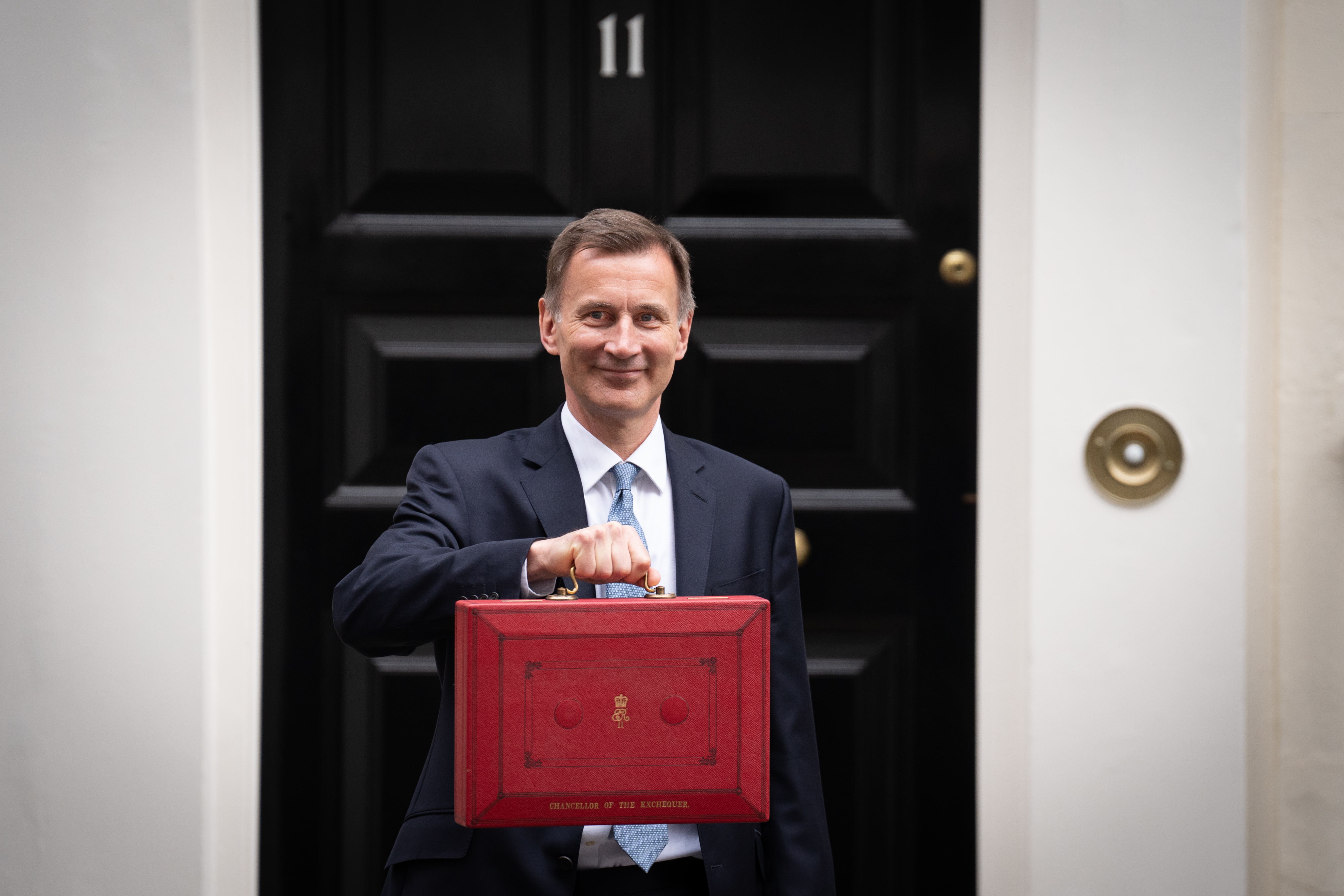Chancellor dealt pre-Budget blow by smaller-than-forecast borrowing surplus
The ONS said there was a public sector net borrowing surplus of £16.7 billion last month, more than double the £7.5 billion a year ago.

The Chancellor has been given less room to offer tax cuts at the upcoming Budget after official figures showed a smaller-than-expected surplus in January.
The Office for National Statistics (ONS) said there was a public sector net borrowing surplus of £16.7 billion last month, more than double the £7.5 billion surplus seen a year ago and the largest surplus since monthly records began in 1993.
But it was lower than the £18.5 billion surplus pencilled in by most economists.
January’s surplus is the largest in nominal terms since monthly records began in 1993, although borrowing in the year to January is only slightly lower than the same period last year
This leaves Jeremy Hunt with a smaller headroom to deliver tax giveaways in the spring Budget on March 6 in what is set to be a crucial event for the Government, marking the last such event before an expected general election later this year.
The Government typically sees a budget surplus – which takes place when tax revenue received is larger than government spending – in January thanks to self-assessment tax payments.
But the surplus widened substantially last month as debt interest payments eased back and without the costly energy support payments that were seen a year earlier.
The ONS added that borrowing in the first 10 months of the financial year so far stood at £96.6 billion, £3.1 billion less than the same period a year ago and lower than the £105.8 billion forecast by the UK’s fiscal watchdog, the Office for Budget Responsibility (OBR).
Jessica Barnaby, ONS deputy director for public sector, said: “January’s surplus is the largest in nominal terms since monthly records began in 1993, although borrowing in the year to January is only slightly lower than the same period last year.
“Tax receipts are always higher in January than other months owing to self-assessed taxes, which often leads to a surplus.
“Also, with recent reductions in the Retail Prices Index (RPI) rate, interest payable on government gilts and without last year’s energy support schemes, overall expenditure was down on this time last year, despite increased spending on public services and benefits.”
The figures showed that the UK’s overall national debt was £2.65 trillion in January, an increase on the £2.49 trillion seen a year ago.
It means debt as a share of the economy represented 96.5% of UK gross domestic product (GDP) and remaining at levels last seen in the early 1960s, according to the ONS.
Debt interest payments stood at £4.4 billion last month, which was £3.5 billion less than a year earlier and the lowest January figures since 2021.
Britain’s debt interest bill is falling because of the benefit of lower levels of RPI inflation, which impacts index-linked gilt stock.
Gora Suri, an economist at PwC UK, said: “As inflationary pressures continue to ease over the coming months, this should reduce the burden of interest payments on the public purse.
“All eyes are on the Chancellor ahead of the upcoming spring Budget.
“With the OBR’s final forecast assumptions now locked in, Hunt is likely to have limited scope for tax cuts or additional spending compared with his predecessors.
“The Chancellor may have more headroom than the OBR expected in November, due to falls in market expectations for interest rates and gilt yields, but lower tax revenues from a smaller cash economy may push headroom down.”
Bookmark popover
Removed from bookmarks